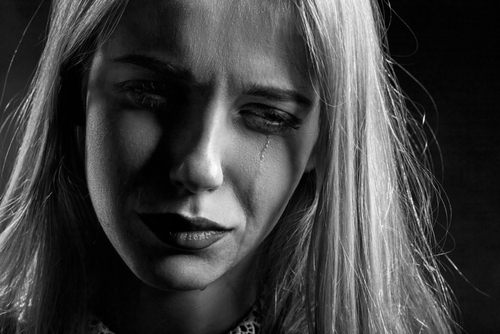My dad was a contradiction. He was as charismatic as he was rageful. He was generous and he was selfish, genuine and deceptive. He was my hero and my nemesis. He became my mirror, a reflection of who I never wanted to become. Our lives had become oddly parallel over the last year of his life. After a few years of little-to-no contact (my choice) my dad wrote to me while I was at the Ranch. “Ain’t that a kick in the head?” he said. “We’re both in rehab.” I chuckled. How could I not? He was right. We’re two sides of the same coin, I thought to myself. I was grateful he was getting help. If I had hope, I was confident he did too. I don’t remember if I wrote back. I’d like to think I did, but I doubt it. My dad was in and out of treatment over the next year or two, fighting his own demons while I fought mine. He was a star patient when he had some accountability and structure. As soon as he was on his own, though, he would resort to his unhealthy behavior. “I’m proud of you for trying,” I told him over the phone and I was. Recovery is a humbling equalizer.
I don’t remember much of those first couple of years after his death. I think my own survival and health required that I focus more on overcoming anorexia than dealing with grief. The questions I could answer came first, questions like where and how, but even those left me with nightmares. I never wanted to know when. I still don’t. It’s not a time or date I want seared in my mind. Something about the answer being a guess haunts me. As the shock thawed, the harder questions rumbled. What should I have done differently? Why wasn’t I enough? Why weren’t my brothers or my kids enough? (My kids, if only he knew my kids.) Why? So many whys that will never have answers. Living with someone else’s suicide promises a lifetime of unanswerable questions.
Faced with concerns about my own life, I questioned if I was really supposed to recover. All of anorexia’s lies roared. Sometimes the Sirens sang. If suicide was my family’s way of dealing with things should it be mine too? You will say, “No!” and I agree, but when two people close to you die at their own hand, suicide begins to feel like an obligation. I finally shared my thoughts with my therapist. It took awhile, but in the safety of his office, I began to miss my dad in the deepest, most primal way possible. Over the next several months, my sorrow, unrelenting and all encompassing, terrified me. As I came up for breath, I realized I could never force my children to ask the same questions I did. I could not be responsible for inflicting so much pain. I realized it was time to change my family’s legacy. Suicide never was and never would be the answer.
I often tell people, “Where there is life, there is hope.” In the midst of eating disorders, addictions and recovery, life is sometimes dark and often painful. The struggle to fight for life can be exhausting. Although I cannot take away your wounds, I can point the way to people who are willing to walk beside you and hold up your arms while you battle. The Meadows and The Meadows Ranch stand ready to support you. You can call them at 866-390-5100. You can reach the National Suicide Prevention Lifeline at 1-800-273-8255.
Tonight on this World Suicide Prevention Day, some 11 ½ years after my father’s death, I will go to sleep thinking of him, hoping that his story and mine will make a difference. Chances are I will weep. I will ask, “why?” and “what if?” Given the opportunity I would encourage him to stay a little longer. So, although I cannot reach out to him, I will continue to hope for you (and me) believing as always that where there is life there is hope.

